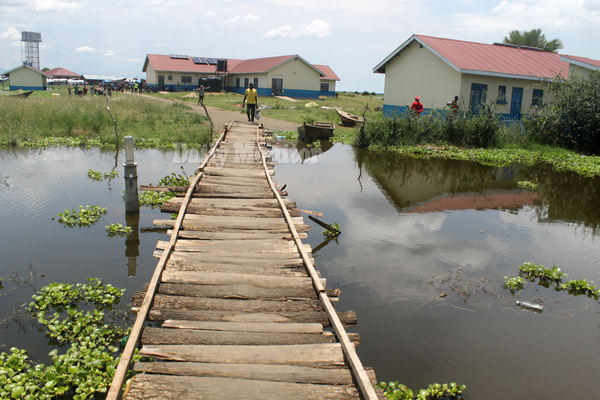Concern as 1,200 pupils share two latrines in Buyende

Many schools in the area are said to be under-funded. PHOTO/COURTESY
What you need to know:
- The budgetary provisions hardly cater for more than two schools.
Buyende District has been hit by a shortage of latrines in schools, with civil society organisations warning that learners risk being sent back home.
At Nkondo Primary School, for instance, 1,215 pupils, including 639 girls, share the only two functional pit-latrine stances found at the school, with the teachers’ latrine equally being at risk of caving in.
Ms Sarah Namugabo, a senior woman teacher, said due to the high population, during break and lunch hours, the pupils form thick queues at either of the latrines, and there is no specific order on which gender accesses the facility first.
ALSO READ: A school without desks, latrines
Mr Dison Bwire, the district education officer (DEO), said the case at Nkondo is one of the many education infrastructure inadequacies in the area, including shortage of desks, classrooms and low teacher-student ratio.
“The budgetary provisions hardly cater for more than two schools, meaning it will take the department 56 years to provide two classrooms, a three-stance latrine and 50 desks to schools in the entire district,” he said.
“Whereas the department is aware, not much can be done partly because of the small school facilitation grant sent by the central government and meagre district budgetary allocation,” he added.
ALSO READ: Uganda kept schools closed longest – Unicef
The DEO added that in Buyende District, the pupil-latrine ratio is 1:120 yet the national average is 1:40.
“For desks, while the national ratio is 1 desk to 3 pupils, Buyende can at best have 9 pupils to a desk, which is a very big gap,” Mr Bwire explained.
He further revealed that the district has resolved to construct more latrines than classrooms and are going to revisit the two classroom block allocations at Nkondo Primary School, do renovations and save some funds to construct a five-stance latrine as an emergency.
ALSO READ: Uganda’s education poor - WB report
The DEO challenged the government to increase capitation grants to schools, allow their management bodies to prioritise allocation of such funds and have a special capitation grant package for quality education provision under the Universal Primary Education (UPE) programme.
While presenting their petition for inclusion in the district budget framework paper for financial year 2022/2023 on Friday, the CSOs advocated for an increase in budgetary provision for essential public services in education and health sectors.
Mr Charles Mudumba, the executive director of Holistic Initiative to Community Development [HOLD-Uganda], noted that for the FY 2021/2022, Buyende allocated Shs4.5b to the health department yet the biggest portion of it caters for staff salaries, leaving unfunded gaps such as sexual reproductive health services and community health dialogues.
Mr Timothy Oboth, the Plan International Uganda project officer, observed that although they constructed a reception shelter at Buyende Central Police Station, little financial resources allocated to community development has rendered the facility almost idle.




